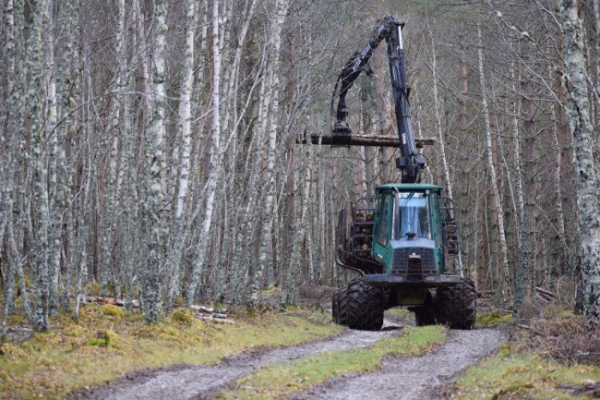
THOMAS PAPACHRISTOU
Institute Director, Forest Research Institute of Thessaloniki
Scientific Committee Member, Hellenic Agricultural Organization-DEMETER
2004–2005 Fulbright Greek Scholar Program to the U.S. Host: Utah State University, Logan, Department of Forest, Range & Wildlife Sciences
Forestry is both a science and an art. It is rooted in the basic sciences of biology, chemistry, and mathematics and is performed with the applied sciences of ecology, silviculture, and management. To become a forester, you have to earn a Bachelor of Science in Forestry. The duration of study depends on the country, but ranges from four to five years for a degree program that helps students gain a thorough understanding of the forest ecosystem and how it can be properly conserved and managed.
Internationally, there are many career options for foresters with graduate or undergraduate majors; among them Natural Sciences Manager, Environmental Compliance Inspector, Forester, Environmental Restoration Planner, Forest and Conservation Technician, Forestry and Conservation Science Teachers, Renewable Materials and Wood Products Industry Specialist, First-Line Supervisor of Fire Fighting and Prevention Workers, Firefighter, Forest Fire Inspectors and Prevention Specialists. In Greece, most foresters work for the Forest Service, and they are responsible for planning, maintaining, and preserving forests, rangelands, and other wildlands and their resources for public and private use. They may protect wilderness areas, enhance habitats for a variety of species, facilitate public recreation, and balance these with timber needs. Foresters also work in private industry for forest consultancies, in lumber companies, and as freelance foresters/environmentalists to carry out special management plans for public or private forests, national parks, protected areas (e.g. Natura), and grazing lands.
There are many forestry programs on offer at Greek and international universities for undergraduate and graduate students, in a variety of specializations, such as Forest Resources Management, Forest Hydrology, Forest Operations and Sustainable Forest Management, Fire Ecology and Management, Forest Pathology and Entomology, Urban Forest Management, Forest Recreation and Park Management, Rangeland Ecology and Grazing Management, Wildlife Habitat Management and Conservation, and Harvesting and Technology of Sustainable Forest Products.
In conclusion, we live in and must adapt to constantly changing environments; changes in social and physical environments transform the beliefs and values of people. Nowadays, the challenge is to learn to manage forest ecosystems in ways that blend culture, ecology, and economics; thus, they significantly contribute to sustainable wellbeing. This approach also supports the climate change mitigation opportunities forests can provide. Circular bioeconomy technology, such as wood-based bioproducts, along with the carbon sequestration potential of trees, are part of new challenges. In other words, Forestry has become a key player in the sustainability transition; therefore, targeted studies in Forest Science give more job opportunities and, at the same time, benefits for the environment, society, and the economy.
Photo Credit: Ma Ti for Unsplash

